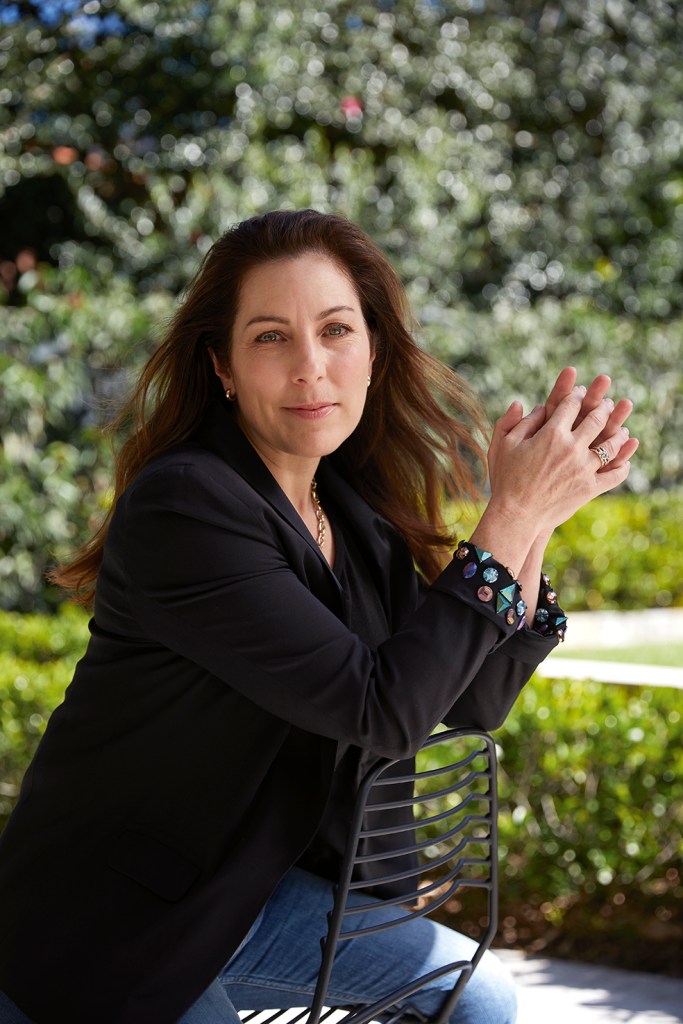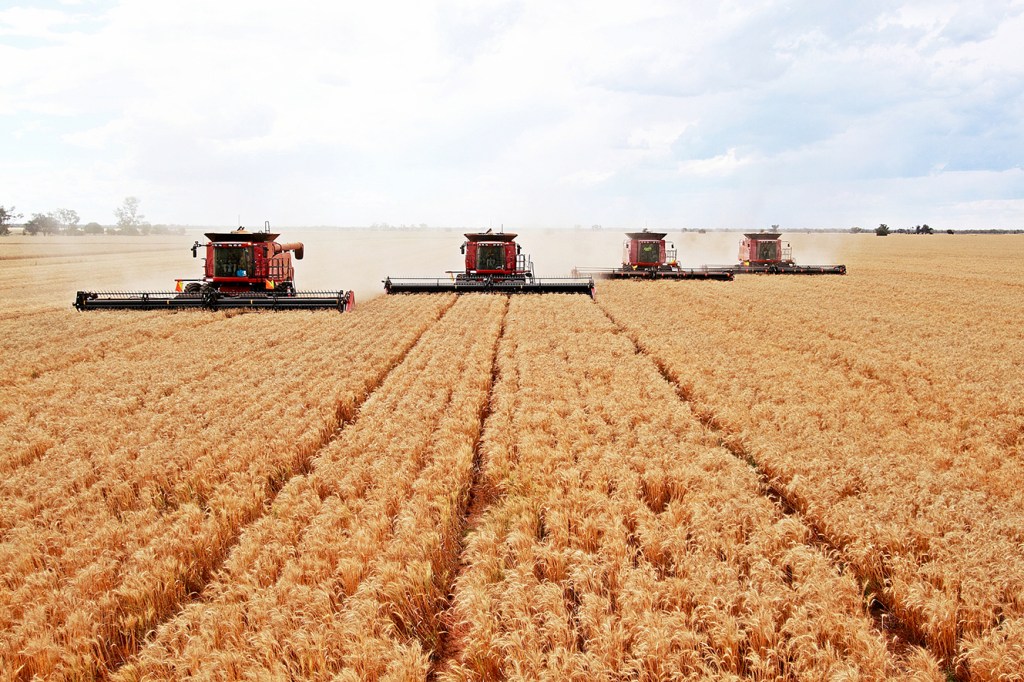Emma Weston is a city lawyer turned farmer who co-founded the digital grain management platform AgriDigital. Her startup is helping transform the agricultural industry from the world’s least digitised to one that is more profitable, equitable and connected.
Key Takeaways
- In 2016, AgriDigital conducted the world’s first live settlement of a physical commodity via blockchain.
- Today, it claims to have 15,000 users in Australia, where 15% of all grain produced uses the platform at the sale, delivery or storage point. This makes it the nation’s largest digital grain management platform.
- In 2021, almost 25 million tonnes of grain were transacted through AgriDigital, at a value of more than $6 billion.

When Emma Weston co-founded the grain management platform AgriDigital six years ago, there was no agrotechnology industry to speak of in Australia, let alone a professional association to help with building networks and getting the word out.
“We didn’t even really know what to call ourselves, to be honest. We were just like, ‘Hey, we’re digitising the grains supply chain’,” says Weston.
Today, Australia’s agtech industry, as it is known, is buoyant and internationally competitive, although investment still lags far behind the US, where per capita investment is 50 times greater. Globally, the agricultural industry has long been recognised as the least-digitised industry, while also being one of the top five industries suited to automation. Weston attributes this to the challenge of adopting new technologies in remote areas that are crippled by slow data speeds or lack connectivity.
“Until recently, there was also very little reason to change,” she says. “Food was produced irrespective of whether you were using technology.”
However, Weston and her AgriDigital co-founders Bob McKay and Ben Reid are farmers, and they could see that digitisation and cloud capabilities were on the cusp of becoming available in Australia’s agricultural sector. They knew that it would profoundly impact the grains supply chain, and that the small and medium enterprises (SMEs) that make up the majority of the sector were completely unprepared.
AgriDigital gives smaller players access to digital tools that will help them scale their businesses. The digital grain management and finance platform simplifies the supply chain and uses blockchain to guard against fraud. It enables businesses to connect with buyers and sellers and provides access to same-day finance.
At the time AgriDigital was launched in 2016, 90% of the world’s grain trade was controlled by four companies who have been dubbed the ABCD of the grain trade (ADM, Bunge, Cargill and Louis Dreyfus).
“It wasn’t about taking away business from those big companies, but about growing the pie that is needed to feed the world,” says Weston. “We’ve seen during the covid pandemic what happens when such fragility is built into the supply chain. I guess we were a bit early in anticipating that it was not a sustainable way to operate.” In 2016, AgriDigital conducted the world’s first live settlement of a physical commodity via blockchain. Today, it claims to have 15,000 users in Australia, where 15% of all grain produced uses the platform at the sale, delivery or storage point. This makes it the nation’s largest digital grain management platform. In 2021, almost 25 million tonnes of grain were transacted through AgriDigital, at a value of more than $6 billion.
“Our goal is to be the leading alternative financier in Australia’s market, and we’ve got the capability to do that,” says Weston. “That would mean that there is no grain supply chain that isn’t powered by AgriDigital in some way, shape or form. The key is knowing when we’re ready to do things on a much bigger scale.”
The accidental CEO
The trajectory of Weston’s career surprises no one more than herself. She never set out to be involved in either technology or agriculture, or to be a CEO or a farmer. She grew up in the well-to-do Melbourne suburb of Camberwell and became a lawyer. However, she grew tired of having problems land on her lap after the fact: she wanted to get in front and be part of the solution. She turned to technology for the answer. In 1998, Weston took on a role as junior counsel at the Australian Wheat Board, a role that would change her life.
“I just kind of fell in love with the whole farming industry. They faced challenges that I hadn’t thought about as a city girl.”
She also fell in love with her colleague, Bob McKay, who she married 17 years ago. In McKay she also found a business partner. AgriDigital is the third company she and McKay have founded, together with their long-term business partner Ben Reid.
“Bob and I share a passion for problem solving. That sounds really boring as the basis for a relationship, but we were also both very ambitious. We had big goals for the industry and didn’t believe that it should settle for second best. Twenty years ago, there was a sense of inferiority due to farming being a primary industry, whereas now I think it’s a point of pride.”
McKay is a grain finance expert and Reid is an inventory expert. “I’m the CEO, but I don’t even know how that came about. It just evolved. Most of what I do is quite strategic. I’ve got two co-founders who I get inputs from as subject-matter experts so that I can make sure we get the results we need.”
The couple continue to divide their time between their house in Sydney and a 600-hectare mixed grain and cattle farm in central west New South Wales, which was hit by heavy flooding in July. Weston now considers herself a farmer at heart, but it was a steep learning curve when she moved onto her husband’s family farm.
“I was excited, but I also didn’t know what I didn’t know, which I guess is similar for a lot of city folk. We still laugh about me asking what day was ‘bin day’, not realising that no one comes and collects your rubbish when you live on a farm. And I was so surprised the first time it rained heavily and we couldn’t get out of our driveway. We had to have plenty of food stored. We didn’t have a generator, so if we lost power, we had no electricity and couldn’t flush the toilets.”
The farm is also home to a plentiful population of red-bellied black snakes and brown snakes. The snakes come for the mice. The mice come for the grain. As a new mum, Weston worried about her baby girl, who is now 16.
“I didn’t put my daughter in shoes so that she couldn’t venture from the lawn around the house. She didn’t like the prickles of the long grass on her bare feet, which stopped her getting into trouble with snakes or getting too close to the creek.”
Nowadays she is admirably relaxed about the snakes: “They are dangerous and need to be respected, but they perform an important function in the bush. We co-exist. I don’t mind them, although I don’t like them in the front garden.”
A fundamental human need
Weston is passionate about growing Australia’s agtech sector, because it drives efficiencies in the essential task of bringing food to market.
“This is not a ride-sharing app or delivering takeaway to someone’s home,” she says. “What gives me a sense of purpose is having rural and regional communities that are thriving, and the flow-on effect that has for society. To thrive, farmers need a buoyant supply chain and businesses that are sustainable and profitable. Who wants to run a business that’s losing money? Well, farmers did that for a very long time.”
AgriDigital has a long list of problems it wants to solve for farmers in the future, such as finding a way to connect the various apps they now have at their disposal.
“The agtech industry has done a fantastic job of bringing technology to the farm, but we’ve done a pretty lousy job of connecting it all together,” she says. “Many farmers are using upwards of 15 apps, and none of that data talks to each other. It’s like having a business where the employees don’t speak to one another.”
Weston is highly driven and always connected and always available – she will even allow a phone call to interrupt her twice daily meditation sessions.
“I’m on a mission and that mission is 24/7,” she says. “It doesn’t mean I’m working all the time. But if a decision needs to be made or there is work to be done, I will do it.”
She finds a great deal of fulfilment in her work at AgriDigital and her life on the farm.
“I grew up thinking that I was going to be a lawyer and that I would be sitting in a corner office in Melbourne, London, New York or somewhere. But I’m a farm girl now. It feels closer to the truth for me.”

AgriDigital is a digital grain management and finance platform
It has won a slew of awards for its innovative use of blockchain to make grains trading more straightforward and secure. The platform has five core functions: digitised storage management, live connections with customer networks, streamlined commodity financing, automated remittances and reporting.
The platform can be used by the entire grains supply chain, including farmers, grain buyers, traders, brokers and storage operators. It ensures the integrity of the trading, tracing and finance involved in transactions. If a buyer initiates a contract, the details simply appear in the seller’s app. Real-time transactions using blockchain provide users with information about the location and status of their asset as it passes through the supply chain. In the past, the opaque supply chain often led to farmers not being paid.
Another key element is knowing the real-time value of grain in the supply chain. Its customers can use their grain assets as collateral to gain access to capital. The majority of Australian farms are family-run, so the main sources of capital have traditionally been debt and retained earnings.
“Instead of having to go to a bank and apply for a loan that may take six weeks to become available, an agricultural user can get up to $2 million within the same day through AgriDigital,” says Weston.
AgriDigital generates revenue via subscription fees, selling data services to supply chain stakeholders and the management fees it charges for its financing fund.
A global perspective on the grains industry
1. AgriDigital was conceived as a way of levelling the playing field in the grains industry. The world’s grain trade has long been dominated by four companies who have been dubbed the ABCD of the grain trade (ADM, Bunge, Cargill and Dreyfus).
2. Those four giants have this year posted record sales and their combined revenue is estimated to be worth more than US$300 billion.
3. The repercussions of a disrupted agricultural supply chain are being played out across
the world as a result of the war in Ukraine, one of the world’s largest grain exporters.
4. There are hopes that Russia’s blockade of the Black Sea ports will be further relaxed. It was preventing 22 million tonnes of grain from leaving Ukrainian warehouses.
5. The export of millions of tonnes of wheat, barley, oil and other agricultural products has slowed, triggering a global food crisis in the developing world and steep food price hikes in developed nations.
6. About 72% of Australia’s agricultural output is exported. China is its biggest market, having grown threefold since 2001.
7. Globally, 60% more food will be needed by 2050 to feed a world population of 9.3 billion, according to estimates compiled by the Food and Agriculture Organization.